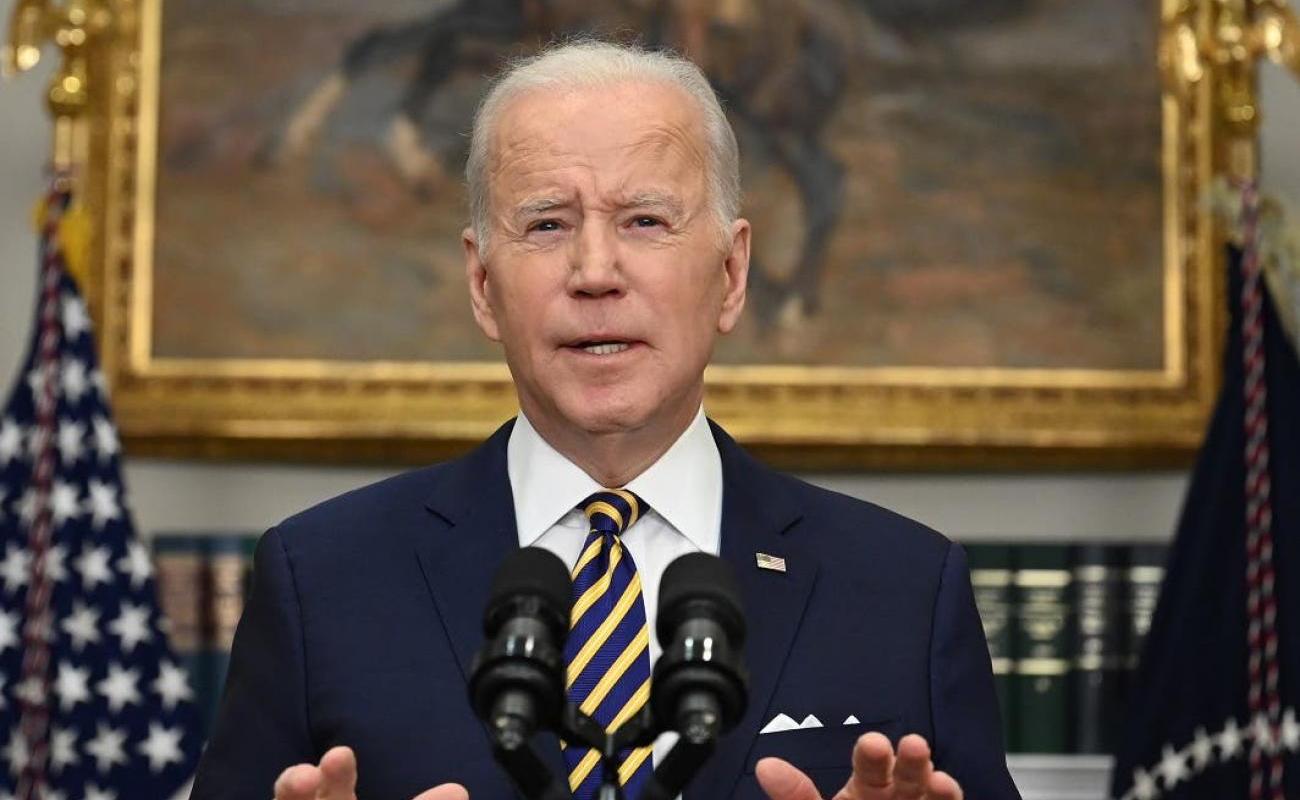Biden Asks For More Than $37 Billion In Aid For Ukraine

President Joe Biden is asking Congress to provide more than $37 billion in emergency aid to Ukraine, a massive infusion of cash that could help support the nation as Russian forces suffer battlefield losses in their nine-month-old invasion.
The administration's funding request, which comes as lawmakers begin their post-election session, also seeks $9.25 billion in COVID-19 funding to prepare for a possible winter surge and help combat the virus nationwide. Government funding expires in mid-December, and the Ukraine and COVID aid would be part of the package to fund the government through the end of September 2023.
The request for such a sizable amount of money for Ukraine comes as the GOP is poised to take control of the House following the midterm elections. House Republican leader Kevin McCarthy, who is in line to become speaker, has warned that Republicans wouldn’t support writing a “blank check” for Ukraine if they capture the majority.
Shalanda Young, director of the White House Office of Management and Budget, said that more than three-fourths of the $40 billion approved by Congress earlier this year for Ukraine has already been disbursed or committed. The Biden administration has asked for a total of $37.7 billion in support.
"Together, with strong, bipartisan support in the Congress, we have provided significant assistance that has been critical to Ukraine’s success on the battlefield — and we cannot let that support run dry, " Young said in a letter to House Speaker Nancy Pelosi.
The proposed Ukraine assistance includes $21.7 billion for military, intelligence and other defense support, $14.5 billion in humanitarian aid and to help keep the Ukrainian government functioning, $900 million for health care and support services for Ukrainians living in the U.S. and $626 million for nuclear security support to Ukraine and for modernizing the Strategic Petroleum Reserve.
U.S. aid to Ukraine has already included tens of thousands of missiles and rockets for air defense and anti-armor systems, and more than 84 million rounds of ammunition, as well as drones, tanks, trucks, radars, body armor and other gear.
Ukrainian leaders have begged for more advanced, longer-range weapons, but the U.S. has been careful to not provide systems that would allow Ukrainian forces to strike deep into Russia or hit Moscow.
In recent months the U.S. assistance has centered on air defense systems and a constant stream of ammunition. Those systems have been critical in helping Ukrainian forces mount a massive counteroffensive that has been able to beat back the advances of Russian forces in the south and east and recapture key territory.
The retaking of Kherson, the only provincial capital captured by the Russians, was one of Ukraine’s biggest successes in the nearly nine-month-old Russian invasion. It dealt a stunning battlefield loss to Moscow, but large parts of eastern and southern Ukraine remain under Russian control and fighting continues.
Russian airstrikes have been targeting civilian infrastructure, including power grids, and they are causing widespread blackouts around the country. The attacks appear aimed at leaving Ukrainian civilians in the cold and dark as winter approaches.
Biden sought $13.7 billion in emergency funding in September, and signed a bill that authorized roughly $12 billion and kept the government funded.
House Foreign Affairs committee chairman Gregory Meeks, D-N.Y., said the new emergency request was “urgent to make sure that we get them everything that we can possibly get into the omnibus so that they have the weapons to continue the momentum moving through the winter.”
He expressed concerns that Ukraine funding could be jeopardized with the GOP in charge of the House.
“I would hope that if they do take over, that their leadership will get them in line so that we can preserve democracy and not allow Russia to win,” he said.
The coronavirus funding ask is considerably lower than the previous request of $22 billion, which reflects in part the changing nature of the virus and the continued effort to combat it, but also the reluctance among Republicans in Congress to continue to fund COVID-19 efforts.
The request includes $2.5 billion for vaccines and therapeutics, $5 billion to support development of new vaccines, $750 million to support research into long COVID and $1 billion to combat the virus internationally.
The request also includes $400 million in funding for smallpox vaccines used for monkeypox response, and $350 million for hepatitis C and to help prevent HIV.
A request for additional disaster relief funding should come soon but isn’t yet finalized, White House officials said.
